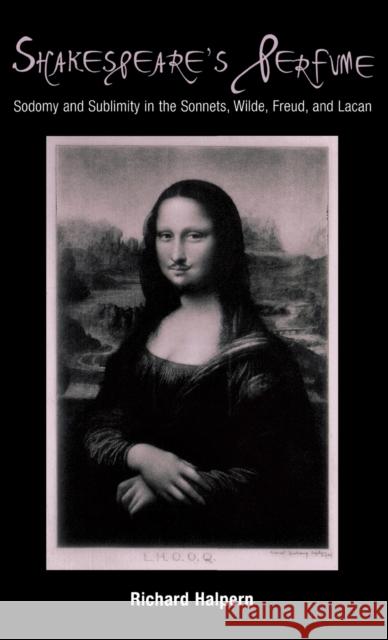Shakespeare's Perfume: Sodomy and Sublimity in the Sonnets, Wilde, Freud, and Lacan » książka
Shakespeare's Perfume: Sodomy and Sublimity in the Sonnets, Wilde, Freud, and Lacan
ISBN-13: 9780812236613 / Angielski / Twarda / 2002 / 134 str.
Shakespeare's Perfume: Sodomy and Sublimity in the Sonnets, Wilde, Freud, and Lacan
ISBN-13: 9780812236613 / Angielski / Twarda / 2002 / 134 str.
(netto: 158,27 VAT: 5%)
Najniższa cena z 30 dni: 154,50 zł
ok. 30 dni roboczych
Bez gwarancji dostawy przed świętami
Darmowa dostawa!
Starting with St. Paul's argument that the Greeks were afflicted with homosexuality to punish their excessive love of statues, Richard Halpern uncovers a tradition in which aesthetic experience gives birth to the sexual--and thus reverses the Freudian thesis that erotic desire is sublimated into art. Rather, Halpern argues, sodomy was implicated with aesthetic categories from the very start, as he traces a connection between sodomy and the unrepresentable that runs from Shakespeare's Sonnets to Oscar Wilde's novella The Portrait of Mr. W.H., Freud's famous essay on Leonardo da Vinci, and Jacques Lacan's seminar on the ethics of psychoanalysis. Drawing on theology, alchemy, psychoanalysis, philosophy, and literary criticism, Shakespeare's Perfume explores how the history of aesthetics and the history of sexuality are fundamentally connected.
Starting with St. Pauls argument that the Greeks were afflicted with homosexuality to punish their excessive love of statues, Richard Halpern uncovers a tradition in which aesthetic experience gives birth to the sexual--and thus reverses the Freudian thesis that erotic desire is sublimated into art. Rather, Halpern argues, sodomy was implicated with aesthetic categories from the very start, as he traces a connection between sodomy and the unrepresentable that runs from Shakespeares Sonnets to Oscar Wildes novella The Portrait of Mr. W.H., Freuds famous essay on Leonardo da Vinci, and Jacques Lacans seminar on the ethics of psychoanalysis. Drawing on theology, alchemy, psychoanalysis, philosophy, and literary criticism, Shakespeares Perfume explores how the history of aesthetics and the history of sexuality are fundamentally connected.











